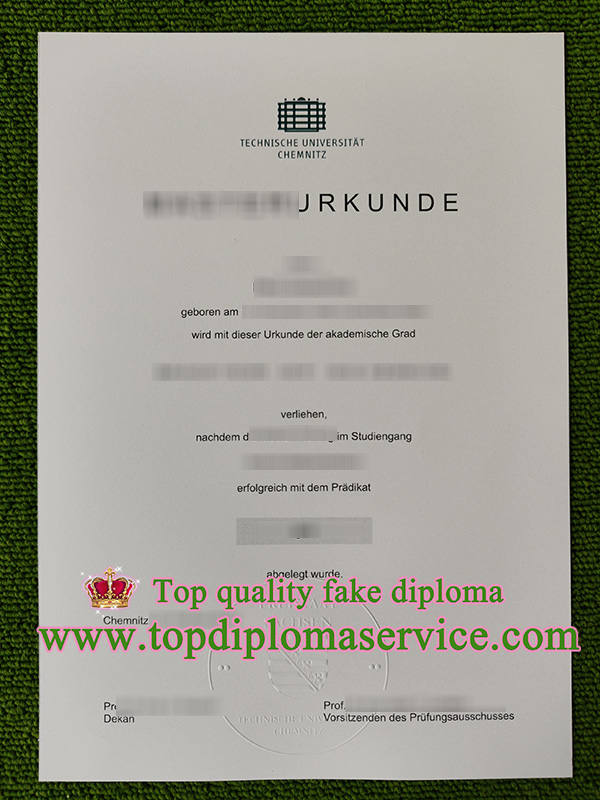
Cost to make fake Technische Universität Chemnitz urkunde, make a fake TU Chemnitz degree, make a fake urkunde certificate. Located in the center of Saxony, Technische Universität (TU) Chemnitz is home to more than 11,600 students from over 90 countries. Chemnitz University of Technology was founded more than 180 years ago and has developed to an innovation center, well recognized in teaching and research. With approximately 2,300 employees in science, engineering and management, TU Chemnitz offers excellent study and research condition.
Today, TU Chemnitz stands for distinctively-profiled and outstanding research. Within the core competences “Smart Systems and Materials”, “Energy-efficient Production Processes” and “Human Factors in Technology”, solutions for the challenges of tomorrow are developed. The main issue in computer science, economic and social development is the creation of value, which in turn is influenced by mega trends such as globalization, demographic change and the availability of resources.
The profile of TU Chemnitz is characterized by a unique constellation of competences across eight faculties. Thanks to this constellation, Chemnitz is emerging as an internationally visible research hub for future value creation processes and sustainable growth for the future. In the 2017/2018 winter semester, the university offers more than 100 courses of study programs for bachelor, master and PhD degree.
The university sees itself as a driver of innovation in dealing with the important problems of tomorrow. Against the backdrop of global changes and new demographics, there is a need for comprehensive solutions that are sustainable, interdisciplinary and beneficial to our society. For this purpose, Chemnitz University of Technology has defined its three core competencies in research and teaching as follows: Materials and Smart Systems, Resource-efficient Production and Lightweight Structures, and Humans and Technology.
Within the area of Materials and Intelligent Systems, the university focuses on the research and development of innovative materials and material systems as well as new integration technologies, for example, in vehicle construction, renewable energy technology and medical technology. Functional applications through intelligent systems are of particular importance. In addition, the university has opened the Center for Materials, Architectures and Integration of Nanomembranes (MAIN), which is unique within Europe, and was financed with 34.3 million euros of federal and state funding.


